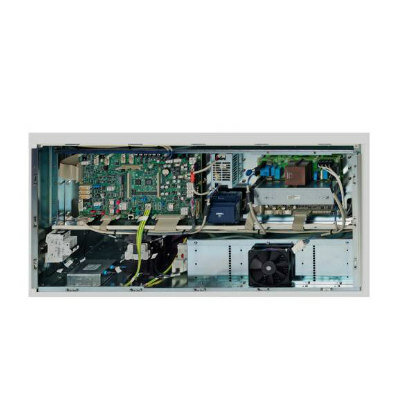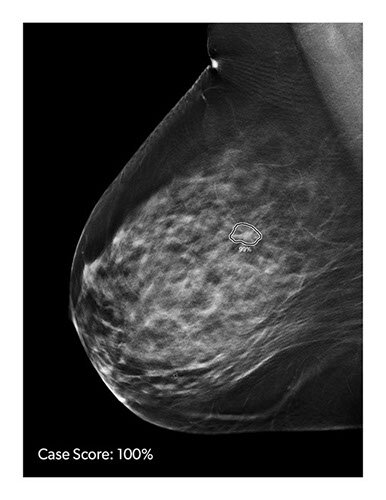Next Gen Image-Guided System Features First Monopolar X-Ray Tube to Capture Images for Interventional Procedures
|
By MedImaging International staff writers Posted on 18 Oct 2023 |

Cardiovascular diseases (CVDs) are increasingly common and remain the topmost cause of death worldwide. As the medical community works to manage these conditions, there's a growing need for less invasive surgeries. In fact, a survey shows that around half of interventional operations are conducted in settings where doctors find it challenging to interact effectively with display and interface functions. To overcome these issues, a new image-guided system (IGS) has been developed to enable interventional cardiologists and other specialists to fully utilize image-guidance technologies by enhancing workflow and improving image quality.
GE HealthCare’s (Chicago, IL, USA) Allia IGS Pulse - the latest addition to the company’s IGS offerings - includes an innovative imaging chain designed to deliver high-quality images at appropriate dosage levels, tailored to suit the complexity of cardiology interventions and varying patient sizes. It offers a customizable workspace to meet the specific needs and preferences of the operator. Notably, Allia IGS Pulse is the first system to feature a monopolar X-ray tube specifically for capturing images during interventional procedures. The tube operates quietly, facilitating a better working environment during the operation. Its small size also allows clinicians to obtain images from difficult angles, aiding in a more comprehensive understanding of coronary artery structures. MyIQ technology is integrated into the system, letting clinicians easily choose from four distinct image styles with just one click, without requiring additional radiation exposure.
For treating complex cardiovascular diseases, Allia IGS Pulse offers high-quality imaging even for patients with a BMI over 30. The system’s minimal pulse width and unparalleled X-ray peak power effectively reduce motion blur, allowing for clearer visualization of moving parts like vessels and medical devices. To make the procedure more efficient, the system incorporates AutoRight PLUS, an advanced version of GE HealthCare's intelligent imaging chain that uses AI. This feature automatically adjusts seven key parameters in real-time, such as the Focal Spot Shape, enabling clinicians to concentrate fully on the patient's treatment. Furthermore, the system includes a special toolkit to bolster dose efficiency, reduce dosage, and raise dose awareness GE HealthCare has now received US FDA 510(k) clearance for its latest image guided system Allia IGS Pulse.
“Interventional cardiology procedures require exceptional image quality,” said Arnaud Marie – General Manager of Interventional for GE HealthCare. “I’m excited by the addition of Allia IGS Pulse to our interventional offerings because it addresses the very things clinicians continue to tell us present challenges in their day-to-day practice. By developing new features to further evolve our core platform, we’re helping to reduce complexity and improve the operating environment so that clinicians can have a personalized workspace that better enables them to keep their focus where it belongs – on their patients.”
Related Links:
GE HealthCare
Latest Radiography News
- Novel Breast Imaging System Proves As Effective As Mammography
- AI Assistance Improves Breast-Cancer Screening by Reducing False Positives
- AI Could Boost Clinical Adoption of Chest DDR
- 3D Mammography Almost Halves Breast Cancer Incidence between Two Screening Tests
- AI Model Predicts 5-Year Breast Cancer Risk from Mammograms
- Deep Learning Framework Detects Fractures in X-Ray Images With 99% Accuracy
- Direct AI-Based Medical X-Ray Imaging System a Paradigm-Shift from Conventional DR and CT
- Chest X-Ray AI Solution Automatically Identifies, Categorizes and Highlights Suspicious Areas
- AI Diagnoses Wrist Fractures As Well As Radiologists
- Annual Mammography Beginning At 40 Cuts Breast Cancer Mortality By 42%
- 3D Human GPS Powered By Light Paves Way for Radiation-Free Minimally-Invasive Surgery
- Novel AI Technology to Revolutionize Cancer Detection in Dense Breasts
- AI Solution Provides Radiologists with 'Second Pair' Of Eyes to Detect Breast Cancers
- AI Helps General Radiologists Achieve Specialist-Level Performance in Interpreting Mammograms
- Novel Imaging Technique Could Transform Breast Cancer Detection
- Computer Program Combines AI and Heat-Imaging Technology for Early Breast Cancer Detection
Channels
Radiography
view channel
Novel Breast Imaging System Proves As Effective As Mammography
Breast cancer remains the most frequently diagnosed cancer among women. It is projected that one in eight women will be diagnosed with breast cancer during her lifetime, and one in 42 women who turn 50... Read more
AI Assistance Improves Breast-Cancer Screening by Reducing False Positives
Radiologists typically detect one case of cancer for every 200 mammograms reviewed. However, these evaluations often result in false positives, leading to unnecessary patient recalls for additional testing,... Read moreMRI
view channel
PET/MRI Improves Diagnostic Accuracy for Prostate Cancer Patients
The Prostate Imaging Reporting and Data System (PI-RADS) is a five-point scale to assess potential prostate cancer in MR images. PI-RADS category 3 which offers an unclear suggestion of clinically significant... Read more
Next Generation MR-Guided Focused Ultrasound Ushers In Future of Incisionless Neurosurgery
Essential tremor, often called familial, idiopathic, or benign tremor, leads to uncontrollable shaking that significantly affects a person’s life. When traditional medications do not alleviate symptoms,... Read more
Two-Part MRI Scan Detects Prostate Cancer More Quickly without Compromising Diagnostic Quality
Prostate cancer ranks as the most prevalent cancer among men. Over the last decade, the introduction of MRI scans has significantly transformed the diagnosis process, marking the most substantial advancement... Read moreUltrasound
view channel
Deep Learning Advances Super-Resolution Ultrasound Imaging
Ultrasound localization microscopy (ULM) is an advanced imaging technique that offers high-resolution visualization of microvascular structures. It employs microbubbles, FDA-approved contrast agents, injected... Read more
Novel Ultrasound-Launched Targeted Nanoparticle Eliminates Biofilm and Bacterial Infection
Biofilms, formed by bacteria aggregating into dense communities for protection against harsh environmental conditions, are a significant contributor to various infectious diseases. Biofilms frequently... Read moreNuclear Medicine
view channel
New SPECT/CT Technique Could Change Imaging Practices and Increase Patient Access
The development of lead-212 (212Pb)-PSMA–based targeted alpha therapy (TAT) is garnering significant interest in treating patients with metastatic castration-resistant prostate cancer. The imaging of 212Pb,... Read moreNew Radiotheranostic System Detects and Treats Ovarian Cancer Noninvasively
Ovarian cancer is the most lethal gynecological cancer, with less than a 30% five-year survival rate for those diagnosed in late stages. Despite surgery and platinum-based chemotherapy being the standard... Read more
AI System Automatically and Reliably Detects Cardiac Amyloidosis Using Scintigraphy Imaging
Cardiac amyloidosis, a condition characterized by the buildup of abnormal protein deposits (amyloids) in the heart muscle, severely affects heart function and can lead to heart failure or death without... Read moreGeneral/Advanced Imaging
view channel
New AI Method Captures Uncertainty in Medical Images
In the field of biomedicine, segmentation is the process of annotating pixels from an important structure in medical images, such as organs or cells. Artificial Intelligence (AI) models are utilized to... Read more.jpg)
CT Coronary Angiography Reduces Need for Invasive Tests to Diagnose Coronary Artery Disease
Coronary artery disease (CAD), one of the leading causes of death worldwide, involves the narrowing of coronary arteries due to atherosclerosis, resulting in insufficient blood flow to the heart muscle.... Read more
Novel Blood Test Could Reduce Need for PET Imaging of Patients with Alzheimer’s
Alzheimer's disease (AD), a condition marked by cognitive decline and the presence of beta-amyloid (Aβ) plaques and neurofibrillary tangles in the brain, poses diagnostic challenges. Amyloid positron emission... Read more.jpg)
CT-Based Deep Learning Algorithm Accurately Differentiates Benign From Malignant Vertebral Fractures
The rise in the aging population is expected to result in a corresponding increase in the prevalence of vertebral fractures which can cause back pain or neurologic compromise, leading to impaired function... Read moreImaging IT
view channel
New Google Cloud Medical Imaging Suite Makes Imaging Healthcare Data More Accessible
Medical imaging is a critical tool used to diagnose patients, and there are billions of medical images scanned globally each year. Imaging data accounts for about 90% of all healthcare data1 and, until... Read more
Global AI in Medical Diagnostics Market to Be Driven by Demand for Image Recognition in Radiology
The global artificial intelligence (AI) in medical diagnostics market is expanding with early disease detection being one of its key applications and image recognition becoming a compelling consumer proposition... Read moreIndustry News
view channel
Bayer and Google Partner on New AI Product for Radiologists
Medical imaging data comprises around 90% of all healthcare data, and it is a highly complex and rich clinical data modality and serves as a vital tool for diagnosing patients. Each year, billions of medical... Read more





















